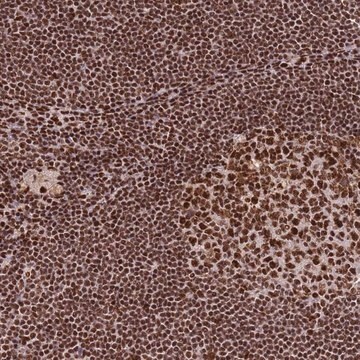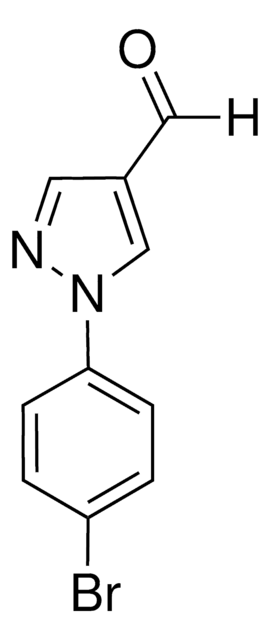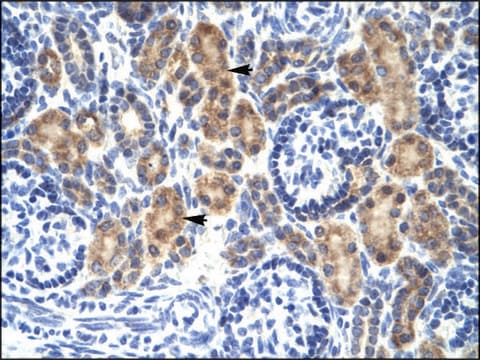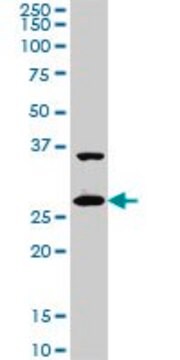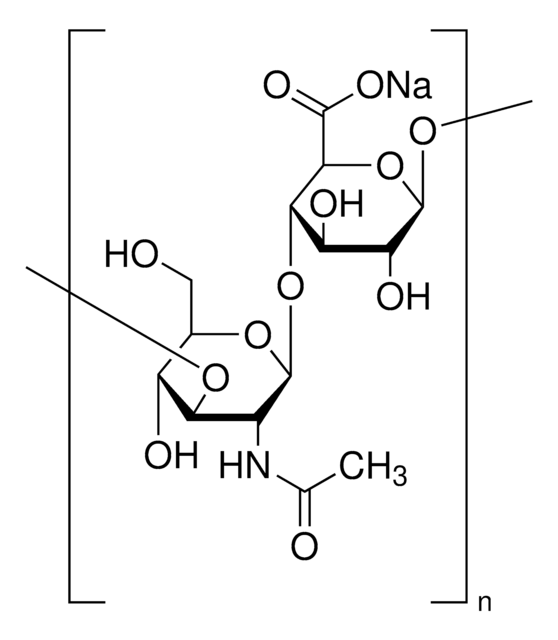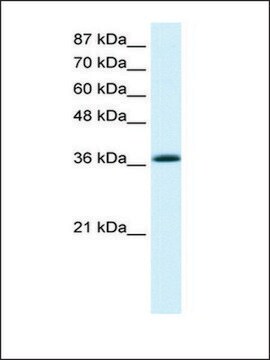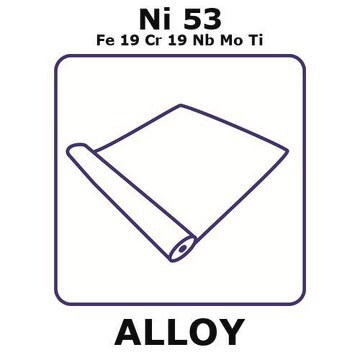AV33096
Anti-HSPA1A antibody produced in rabbit
IgG fraction of antiserum
Sinonimo/i:
Anti-Heat shock 70 kDa protein 1A
About This Item
Prodotti consigliati
Origine biologica
rabbit
Livello qualitativo
Coniugato
unconjugated
Forma dell’anticorpo
IgG fraction of antiserum
Tipo di anticorpo
primary antibodies
Clone
polyclonal
Forma fisica
buffered aqueous solution
PM
52 kDa
Reattività contro le specie
bovine, goat, guinea pig, dog, human, sheep, rat, horse, rabbit, mouse
bovine, goat, human, dog, guinea pig, sheep, rat, horse, mouse, rabbit
Concentrazione
0.5 mg - 1 mg/mL
tecniche
western blot: suitable
N° accesso NCBI
N° accesso UniProt
Condizioni di spedizione
wet ice
Temperatura di conservazione
−20°C
modifica post-traduzionali bersaglio
unmodified
Informazioni sul gene
human ... HSPA1A(3303)
Categorie correlate
Descrizione generale
Specificità
Immunogeno
Applicazioni
Azioni biochim/fisiol
Sequenza
Stato fisico
Esclusione di responsabilità
Non trovi il prodotto giusto?
Prova il nostro Motore di ricerca dei prodotti.
Codice della classe di stoccaggio
10 - Combustible liquids
Classe di pericolosità dell'acqua (WGK)
WGK 3
Punto d’infiammabilità (°F)
Not applicable
Punto d’infiammabilità (°C)
Not applicable
Certificati d'analisi (COA)
Cerca il Certificati d'analisi (COA) digitando il numero di lotto/batch corrispondente. I numeri di lotto o di batch sono stampati sull'etichetta dei prodotti dopo la parola ‘Lotto’ o ‘Batch’.
Possiedi già questo prodotto?
I documenti relativi ai prodotti acquistati recentemente sono disponibili nell’Archivio dei documenti.
Il team dei nostri ricercatori vanta grande esperienza in tutte le aree della ricerca quali Life Science, scienza dei materiali, sintesi chimica, cromatografia, discipline analitiche, ecc..
Contatta l'Assistenza Tecnica.
